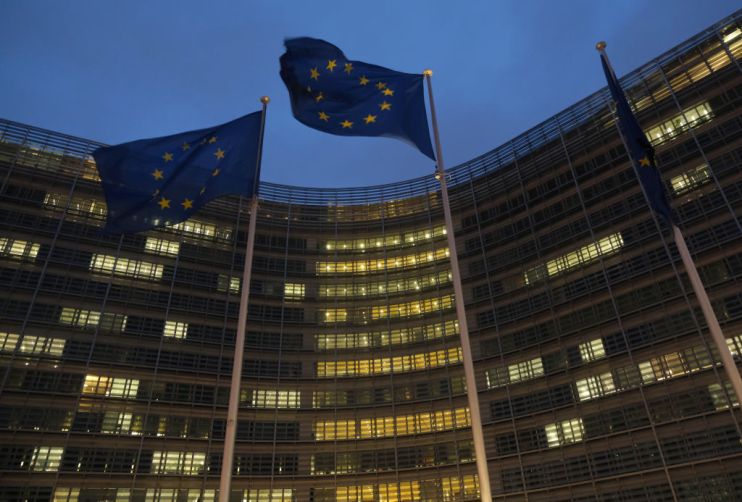Golden age of tech: Value of European tech firms soar to €618bn

The value of Europe’s tech firms has soared in the past five years signalling the start of a golden age of tech entrepreneurship on the continent.
Technology has become somewhat of a safe haven for investors during the pandemic but figures from Dealroom indicate it is part of a longer trend.
European tech companies are now worth four times what they were half a decade ago, with the combined value jumping from €155bn to €618bn.
This has in large part been fuelled by a leading generation of tech founders which have helped to large funding rounds, exits and job opportunities.
Certainly the impact of the pandemic has helped Europe’s largest tech firms consolidate their position. The value of the top ten companies has surged from €123bn in January 2020 to €215bn in October 2020.
As of October 2020, a third of the combined value of companies is based on the top 10 leading tech businesses in Europe: Adyen, BioNtech, Delivery Hero, Klarna, Spotify, Ocado, HelloFresh, Takeaway.com, UiPath and Zalando.
Tech leads job creation in Europe
While Europe’s travel, tourism and leisure sectors have taken a beating due to the pandemic, tech firms have continued to expand in the face of lockdown restrictions.
Ecommerce, healthtech and fintech have all enjoyed significant interest from investors which has in term led to firms employing at scale.
This generation of leading tech firms has led to the sector becoming an engine of job growth on the continent.
Despite a rise, 2m people now employed in tech startups, up 43% on 2016 figures, with the sector likely to employ 3.2m people by 2025 according to Dealroom estimates.
The ‘virtuous VC cycle’
And these leading companies are not just creating millions of jobs within their own startups but starting to invest as angles in the next generation.
In addition to building new companies, many tech alumni are now active investors. Spotify founder Daniel Ek has committed to invest $1bn in tech firms, while former LoveFilm alumni including Saul Klein and Alex Chesterman are involved both in funding the next-generation startups.
Chesterman himself has founded online car dealership Cazoo, which is one of Europe’s fastest growing e-commerce businesses with a valuation of $2bn.
But European funding is not just coming from this virtuous VC cycle of tech titans, but from more traditional means too.
European VCs raised €12.7bn in 2019, almost double the €6.6bn they raised in 2013, and are on track to raise a total of €13bn by the end of the year.
There had been initial worries at the start of the pandemic as investors turned to their portfolio companies, but these fears have subsequently subsided.
Yoram Wijngaarde, founder and chief executive of Dealroom told City A.M.: “It soon became clear that many digital businesses accelerated or at least stayed resilient – ecommerce, edtech, health, gaming, streaming, but also enterprise cloud and remote work.”
Looking forward the indications are that this trend will continue well into next year. “For 2021, by all indications technology will continue to be regarded as the relatively safe asset. Money will continue to flow to tech, VC and startups,” Wijngaarde added.
Despite the record amounts of money being raised in Europe, a KPMG report also released today shows VC investment in the UK softened by 20 per cent in the third quarter.
Deal volume dropped by almost a half year-on-year in the face of Covid-related concerns and the potential of a no-deal Brexit.
KPMG UK board member Bina Mehta said: “Although the pandemic has overshadowed Brexit negotiations in recent months, concerns over the possibility of a hard Brexit as of 31 Decmeber 2020 are growing, making it a critical area to watch heading into the last quarter of the year.”
Despite a drop in the number of deals, the UK has continued to attract large rounds. Fintech remains resilient with digital bank Revolut raising $580m in the quarter, while cloud-based banking platform Thought Machine raised $125m.